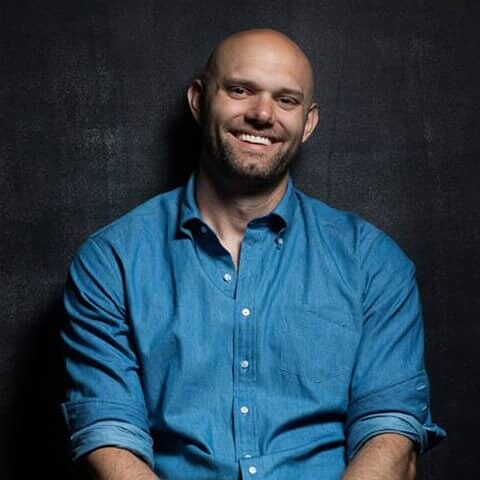 author
authorDavid Foster Wallace
David Foster Wallace was an American novelist, short story writer, essayist, and university professor of English and creative writing. Wallace is widely known for his 1996 novel Infinite Jest, which Time magazine cited as one of the 100 best English-language novels from 1923 to 2005. His posthumous novel, The Pale King (2011), was a finalist for the Pulitzer Prize for Fiction in 2012. The Los Angeles Times's David Ulin called Wallace "one of the most influential and innovative writers of the last twenty years."
Wallace grew up in Illinois and attended Amherst College. He taught English at Emerson College, Illinois State University, and Pomona College. In 2008, he died by suicide at age 46 after struggling with depression for many years.
The Broom of the System (1987) garnered national attention and critical praise. In The New York Times, Caryn James called it a "manic, human, flawed extravaganza … emerging straight from the excessive tradition of Stanley Elkin's The Franchiser, Thomas Pynchon's V., [and] John Irving's World According to Garp".
In 1991, Wallace began teaching literature as an adjunct professor at Emerson College in Boston. The next year, at the suggestion of colleague and supporter Steven Moore, Wallace obtained a position in the English department at Illinois State University. He had begun work on his second novel, Infinite Jest, in 1991 and submitted a draft to his editor in December 1993. After the publication of excerpts throughout 1995, the book was published in 1996.
In 1997, Wallace received a MacArthur Fellowship. He also received the Aga Khan Prize for Fiction, awarded by editors of The Paris Review for one of the stories in Brief Interviews with Hideous Men, which had been published in the magazine. In 2002, Wallace moved to Claremont, California, to become the first Roy E. Disney Professor of Creative Writing and Professor of English at Pomona College. He taught one or two undergraduate courses per semester and focused on writing.
Wallace delivered the commencement address to the 2005 graduating class at Kenyon College. The speech was published as a book, This Is Water, in 2009. In May 2013, parts of the speech were used in a popular online video titled "This Is Water." Bonnie Nadell was Wallace's literary agent during his entire career. Michael Pietsch was his editor on Infinite Jest.
Wallace died in 2008. In March 2009, Little, Brown, and Company announced that it would publish the manuscript of an unfinished novel, The Pale King, that Wallace had been working on before his death. Pietsch pieced the novel together from pages and noted what Wallace left behind. Several excerpts were published in The New Yorker and other magazines. The Pale King was published on April 15, 2011, and received generally positive reviews. Michiko Kakutani of The New York Times wrote that The Pale King "showcases [Wallace's] embrace of discontinuity; his fascination with both the meta and the microscopic, postmodern pyrotechnics and old-fashioned storytelling; and his ongoing interest in contemporary America's obsession with self-gratification and entertainment." The book was nominated for the Pulitzer Prize.
Throughout his career, Wallace published short fiction in periodicals such as The New Yorker, GQ, Harper's Magazine, Playboy, The Paris Review, Mid-American Review, Conjunctions, Esquire, Open City, Puerto del Sol, and Timothy McSweeney's Quarterly Concern.
Wallace covered Senator John McCain's 2000 presidential campaign[45] and the September 11 attacks for Rolling Stone; cruise ships (in what became the title essay of his first nonfiction book), state fairs, and tornadoes for Harper's Magazine; the US Open tournament for Tennis magazine; the director David Lynch and the pornography industry for Premiere magazine; the tennis player Michael Joyce for Esquire; the movie-special-effects industry for Waterstone's magazine; conservative talk radio host John Ziegler for The Atlantic; and a Maine lobster festival for Gourmet magazine.
He also reviewed books in several genres for the Los Angeles Times, The Washington Post, The New York Times, and The Philadelphia Inquirer. In the November 2007 issue of The Atlantic, which commemorated the magazine's 150th anniversary, Wallace was among the authors, artists, politicians, and others who wrote short pieces on "the future of the American idea."
These and other essays appear in three collections, A Supposedly Fun Thing I'll Never Do Again, Consider the Lobster, and the posthumous Both Flesh and Not, the last of which contains some of Wallace's earliest work, including his first published essay, "Fictional Futures and the Conspicuously Young."
Some writers have found parts of Wallace's nonfiction implausible. Franzen has said that he believes Wallace made up dialogue and incidents: "those things didn't actually happen." John Cook remarked, "Wallace encounters pitch-perfect characters who speak comedically crystalline lines and place him in hilariously absurd situations...I used both stories [in teaching journalism] as examples of the inescapable temptation to shave, embellish, and invent narratives."
Best author’s book


































